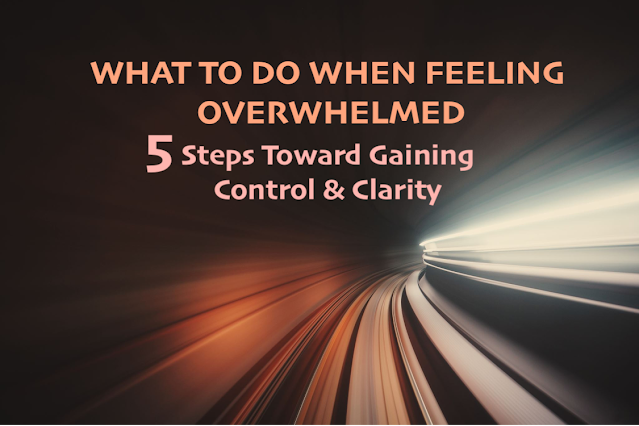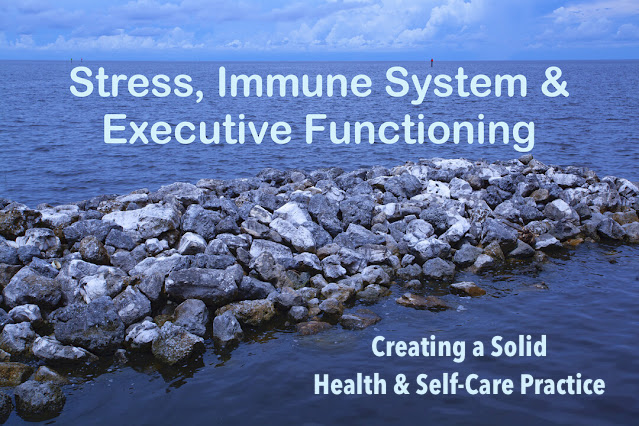YOGA & YOUR NERVOUS SYSTEM: Retreat to Re-Regulate
- Get link
- X
- Other Apps
QUIET YOUR MIND ENERGIZE YOUR BODY RECLAIM YOUR SENSE OF PEACE
"How did you go bankrupt?"
The response:
"Two ways;
gradually and then suddenly."
How did I end up here?
This self-reflection question is usually associated with a negative outcome. We do not tend to be curious about how we achieved a high level of success because built into the success model is the incremental stages of disciplined and focused work that led one from point A to point B. Success follows a formula and there is a conscientious effort that advances life in an onward and upward fashion. However, when life spirals downward, it usually follows this formula —> gradually and then suddenly.
Burnout, anxiety, depression, fatigue, listlessness, and a whole lot of other energy-depleting adjectives become the definitions of how you feel and of your life. This, unfortunately, is the story of too many of us these days. Few are reporting feeling energized, focused, and a general sense of well-being. This is affecting our nervous systems.
Wired and tired;
instead of living and thriving.
When life and living conditions initially and gradually deteriorate,, we adapt. Therein lies the problem. Too much adaptation (as opposed to reducing our tolerance for this decline) results in the aforementioned: How did I get here ?
Almost everyone can identify with the pressure of feeling overwhelmed. Too much to do and not enough time! The question, in that moment, becomes- What do I do?
WHAT DOES A REGULATED NERVOUS SYSTEM FEEL LIKE?
A regulated nervous system feels balanced and stable. Heart rate, digestion, blood pressure and respiratory rate function appropriately. There is a sense of calmness and peacefulness within the mind and body, resulting in a strong feeling of vitality and a Joie de Vivre. Mental clarity is strong and energy is abundant. Sleep is restorative and deep. Food cravings are in sync with healthy body demands. When these align, we feel a sense of serenity. Confidence and self-efficacy soar, while feelings of anxiety and depression ameliorate or disappear altogether.
Finding this coveted space deep within our minds and bodies requires making time for a purposeful escape; an opportunity to disengage from the demands of everyday life so as to reconnect with ourselves.
HOW CAN YOGA HELP?
Using magnetic resonance spectroscopic imaging, researchers at Boston University School of Medicine (BUSM) found that practicing yoga may elevate gamma-aminobutyric (GABA) levels.
Why is this important?
Because GABA is a natural brain relaxant
that helps you feel good.
The BENEFITs PACKAGE
The moving meditative nature of yoga, combined with breathwork, is one of the most powerful actions we can take to help restore balance deep within our bodies. Yoga primarily works through the activation of the parasympathetic nervous system, the component most often associated with rest & digest.
Mindfulness Enhancement
Yoga emphasizes the relationship between the mind and the body and through its movements, mindfulness is the goal. This is especially heightened in yoga's balancing poses. Balancing requires presence.
Mindfulness is the act of paying attention to the present moment with a non-judgmental attitude. It is the human ability to become fully present, without feelings of overwhelm or over-reactivity. The more you practice being in this state of mind, the more natural it will feel and be for you. Be mindful of:
NEURONS THAT FIRE TOGETHER,
WIRE TOGETHER
This is how habits are formed. The more you practice, the more powerful these effects will be in your life.
Emotional Release
Those who have been practicing yoga for at least 3 months will often report an emotional or cathartic release. This can happen sooner but as with anything worth doing, it's the continued efforts and adherence to a disciplined practice that delivers the most profound benefits.
Self-awareness and self-discovery are essential teachings in yoga. By becoming more aware and attuned to our emotional selves, we create the necessary internal space to gently understand and process emotions. In addition, by physically stretching and manipulating the body and therefore releasing tension and tightness, many have reported feeling more energized and focused. Through enhanced clarity, one may find an ideal solution or answer to a challenge that was quite elusive when feeling dysregulated, stressed and/or foggy brained.
In addition, certain yoga practices, such as restorative or yin yoga, focus on deep relaxation and holding poses for an extended period, allowing for introspection and the processing of emotions.
Persistent and unresolved feelings can take hold in the body creating unwanted and misunderstood sensations, such as pain, anxiety and/or a general feeling of "stuckness," resulting in the inability to move forward in one's life.
A fairly inexpensive and easily accessible intervention with a plethora of benefits and few (if any) side-effects if practiced responsibly, yoga has been shown to promote good health in as little as a few hours per week. Whether practiced privately or within a group setting, in-studio or on-line, yoga's popularity has made it increasingly available. While science has documented the benefits of yoga, it should not be used as a substitute or replacement for professional medical advice, diagnosis, or treatment.
It is important to note that individual experiences with yoga can vary, and its effects on mental health may differ from person to person. As with most things in life, there isn't a magic pill or "cure-all" but there are strategies to help regain control of your life.
Reference:
Boston University. "Yoga May Elevate Brain GABA Levels, Suggesting Possible Treatment For Depression." ScienceDaily, 22 May 2007
Let's connect:
FACEBOOK: Marie Therese Rogers
Atlantic Behavioral Health Professionals
Life in Focus
LINKEDIN: Marie T. Rogers, Ph.D.
INSTAGRAM: Mariethereserogers
YOU ARE ALSO INVITED TO LISTEN TO THE LIFE IN FOCUS PODCAST ON APPLE AND OTHER STREAMING DEVICES.
Life in Focus Podcast YOGA & YOUR NERVOUS SYSTEM EPISODE
- Get link
- X
- Other Apps













Love this article!
ReplyDelete